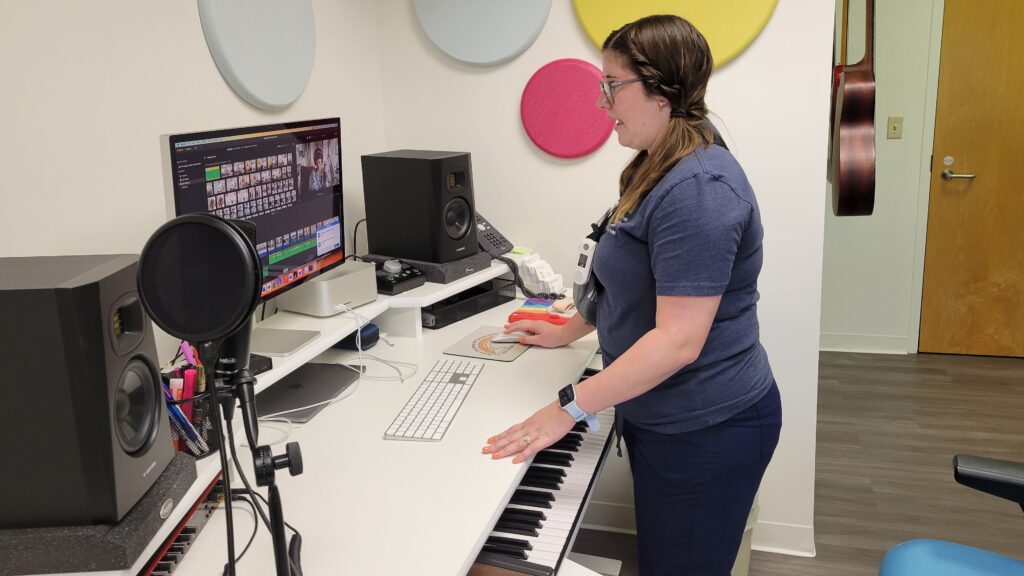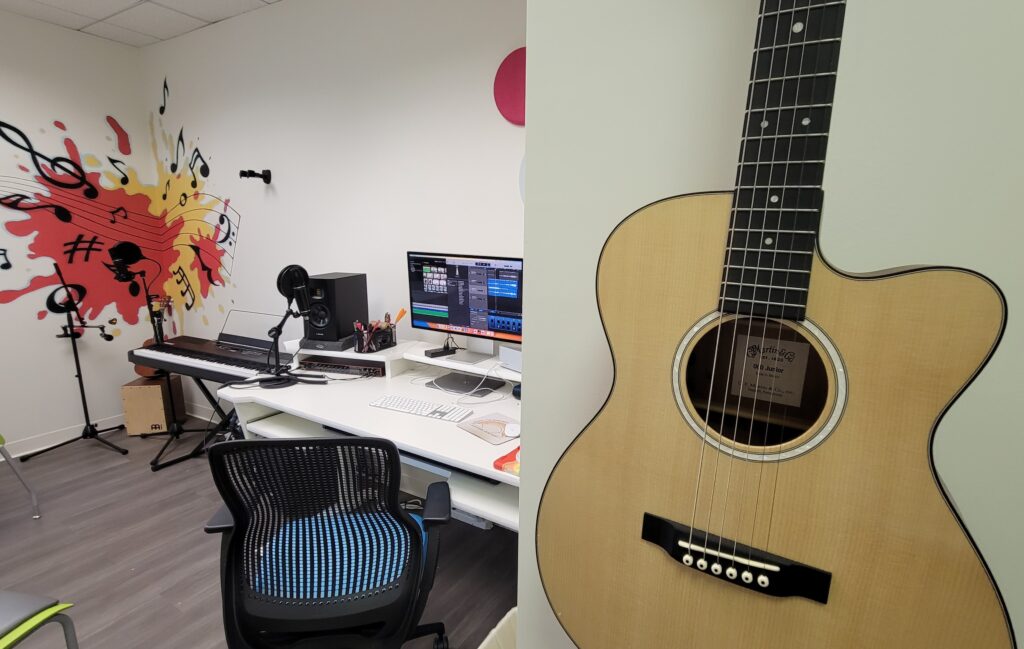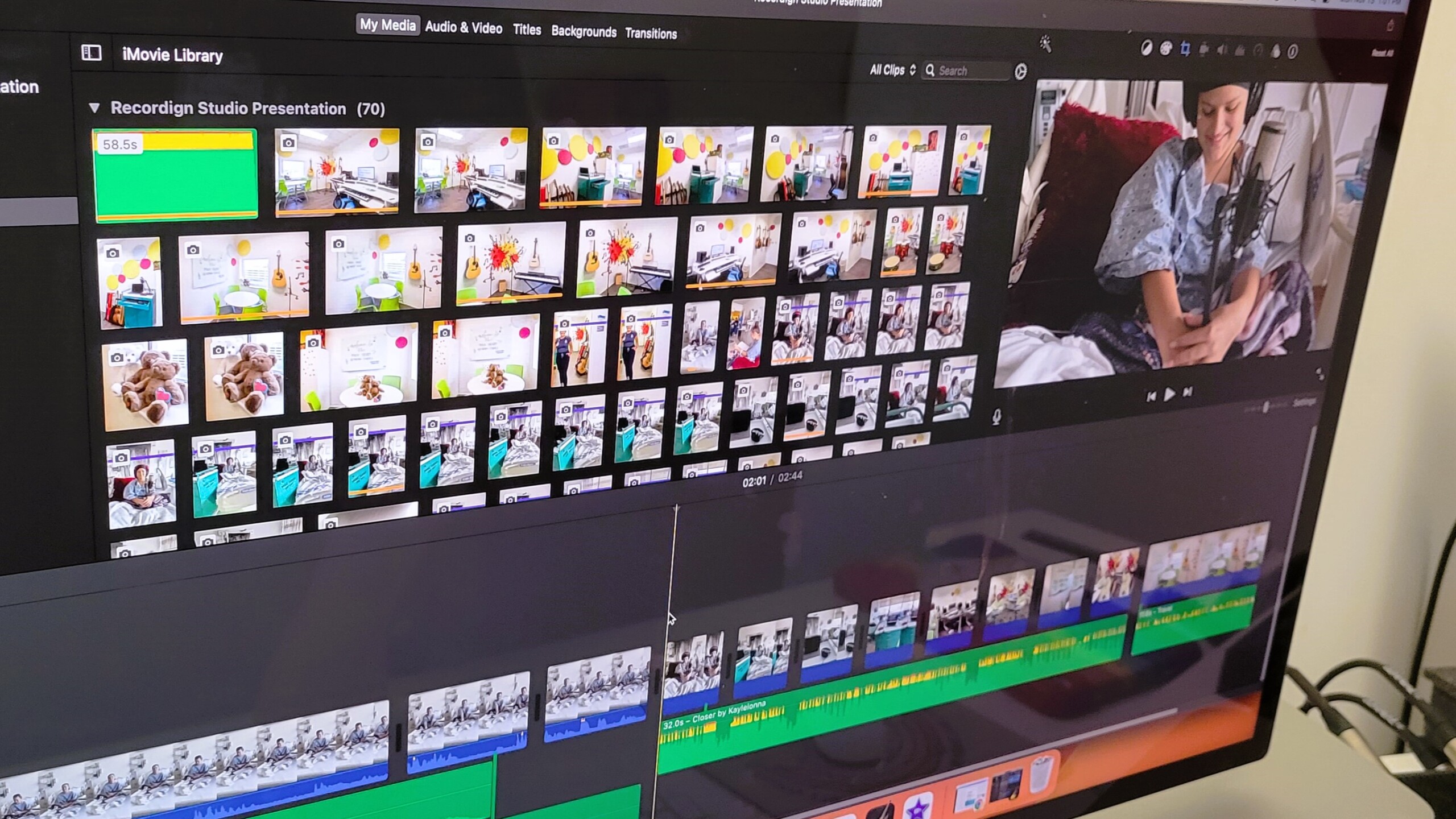She is 13, going on 21, her music therapist says, laughing as she describes a young patient who has long dealt with a blood disorder at Wolfson Children’s Hospital.
But as Kaylei recovered over the summer from a bone marrow transplant, she decided to sing as part of her recovery, using her own heartbeat as the rhythm behind her lyrics in the hospital’s new recording studio.
“Everything changed all at one. Nothing is the same as it was,” Kaylei’s lilting lyrics go. “I used to be colorful and bright. But now I feel like I have lost my light. But I’m getting closer to feeling right.”
Then certified music therapist Dannielle Caldwell edited the song. Kaylei was one of 10 Wolfson’s patients to use a music studio as therapy during their stay.
For an even younger patient whose days were limited, her song became her legacy as her illness progressed, Caldwell said.
“I was able to go in and get a recording of her singing a week before she passed and was able to turn that into a project for her family to have. They actually played that at her funeral,” Caldwell said. “They knew. Whenever I went in and introduced the idea, they just knew; they knew the importance of what I was trying to do and what it would mean to them in the future. … Just watching her sing in a moment when she felt awake and OK enough to do so, you could just see the joy to her eyes. Then they rolled her off in her stroller, and she gave a princess wave to everyone as she left.”

Music therapy allows patients to use song as a therapy, or “to accomplish individualized goals within a therapeutic relationship,” according to Wolfson. Music therapists are part of the Southbank hospital’s health care team working in the pediatric, cancer and blood disorder departments among others after completing an approved music therapy program.
Hospital music therapist Morgan Maxwell created the idea for the recording studio about three years ago, and Christ’s Starfish Foundation donated funds about a year ago to build the dedicated facility in former office space.
The music therapy team, part of the hospital’s Family Support Services department, installed a computer with audio and video editing systems, microphone and electronic keyboard on a height-adjustable desk so children can use it standing or in a wheelchair.

Guitars hang on the studio walls near drums, a ukulele, bongos and other musical instruments, plus a larger electronic keyboard. Colorful soundproofing tiles decorate the walls. And there is room for the patient’s family to join.
“We find a massive need in the hospital for our hospitalized children to have a safe space to come that is outside of their room and full of fun,” Caldwell said. “There’s a lot of color here and a lot of fun instruments and recording equipment, and an opportunity for patients to feel like kids. They are here getting poked and prodded and have to stay in their beds and have all of these procedures and hear very unfun news.”
If the child cannot come to the studio, a portable recording system can be wheeled to the patient’s room, which is what Kaylei did initially before an in-studio visit. And that is how Kaylei and Caldwell clicked.
“Music is the back door to really getting into what are we really feeling, how are we coping and how can I help you cope,” Caldwell said. “Music was a huge way for her to cope and that started the song writing, and we wrote about her experience getting diagnosed, then all the way through her treatment process and how she was feeling.”
In a video on the hospital’s Facebook page, Kaylei expands on that, saying her bone marrow transplant would “be my light; and cure me” echoing some of her song’s lyrics.

Making music, whether it is writing their own lyrics or using a popular song as the basis, helps ease the child’s stress while stuck in a hospital room with IVs and medical procedures, Caldwell said. Music therapy can help children relax during certain procedures, or can help strengthen coping skills.
The musical therapists can also offer experiences that families can remember after their child does die, Caldwell said.
“A very real part of my job as a music therapist is to provide that legacy that they would not get unless my job existed, unless I got heartbeat recordings at end of life, unless I did bring in my instrument and guitars and offer them an opportunity to play their favorite songs with their siblings and with their parents” she said. “We can even have them in here to record themselves, to make their own choices about their own music.”
The hospital is offering a 1,040-hour internship in music therapy, with clinical experience in the PICU, CVICU, NICU, hematology and oncology, behavioral health and acute care floors. The internship information and application is here.







